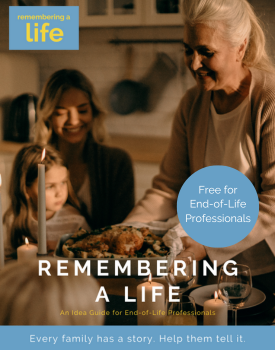Royal funerals are elaborate occasions, full of pageantry and ritual. When Queen Elizabeth died in 2022, over 4.1 billion people watched the hours-long affair on television. Because of security concerns, royal funerals are generally planned out well in advance. However, Prince Phillip took an unusually hands-on approach, even personally designing and helping to build his hearse – a Land Rover Defender TD5 130. Purportedly, his self-written funeral plan was over 50 pages long, and his planning process was even depicted on the TV series The Crown, where he referred to it as “stimulating.”
Prince Philip used his funeral to spotlight parts of his life and career that he was most proud of. He served for years in the Royal Navy, although his role as consort to the Queen always overshadowed his service. It was vital for Philip that his service be honored and remembered, and military symbolism figured large in his funeral. His hearse was "Dark Bronze Green," the color used on military Land Rover vehicles (not Belize Green, the standard Land Rover Defender color). Regalia used in the funeral, such as medals and insignia, were personally chosen by him, and over 700 military personnel were involved in the ceremony. His royal navy cap sat atop his coffin as the open-backed Land Rover hearse drove through the streets of Windsor.
By carefully planning the logistics, agenda, and scope of his funeral (although the original guest list of 800 was trimmed to 30 due to COVID-19), Philip put his stamp on his last goodbye—his presence and voice were heard loud and clear throughout the service.
Would you also like to have some control over your own “last exit?”
Planning your funeral is not just about leaving a legacy, but also about embracing your unique identity. It's an opportunity to be remembered in a way that truly reflects who you are. Imagine choosing your favorite church, restaurant, or park for your service, selecting the music or poems that resonate with you, and even deciding the menu for the repast. This is your final celebration, and planning it in advance not only gives you a sense of control but also offers a lasting memory for your loved ones.
There are many ways to put your imprint on your funeral services. After choosing the location for your funeral, if you want to take a further step, speak with your clergy person or visit the funeral home and discuss your wishes with them. Leave your directions about this in writing for your family, or even better, have a conversation with them. At the very least, it is crucial to express your disposition wishes with your family so they know your preferences – burial or cremation, etc.; to have to make a decision like this for someone else is incredibly weighted and difficult. If you want something like a green funeral, you will likely need to go further and identify specific providers, so your family does not have to research to find them. And, if you want a home funeral, you must make sure that the family and friends who will have to be intimately involved in your body care and keeping you at home are comfortable doing so. In this case, it would pay to find a funeral director who supports home funerals and can assist in ways your family might want and need at the time.
Do you have final words you'd like to share with your loved ones? In the movie American Fiction, the character Lisa Ellison, played by Tracee Ellis Ross, leaves a letter to be read at her funeral. Such a letter, whether read privately or aloud, can be a powerful source of healing for your survivors in the event of a sudden loss; it offers them a chance to hear your voice one last time.
Advance funeral planning can also provide financial advantages. It allows you to estimate the cost of your desired funeral, ensuring you can set aside the appropriate funds. Whether you choose to pre-arrange through a funeral home, take out a funeral life insurance policy, or establish a dedicated bank account, designating funds for your funeral will alleviate financial pressures on your survivors in the days following your passing. Some forms of advance planning may even allow you to lock in prices at today's rates, but it's important to consult with your accountant or attorney for all prepayment questions to ensure they align with your financial plans. Knowing your funeral arrangements are taken care of in advance can also give YOU peace of mind in the present.
There are few disadvantages to taking a lead role in your own funeral planning, and many benefits for both you and those that survive you. After all, if it's good enough for a prince, why not you? For more on advance planning – funerals and more – keep an eye out for the new Remembering a Life series “A Good Death,” beginning in July.


